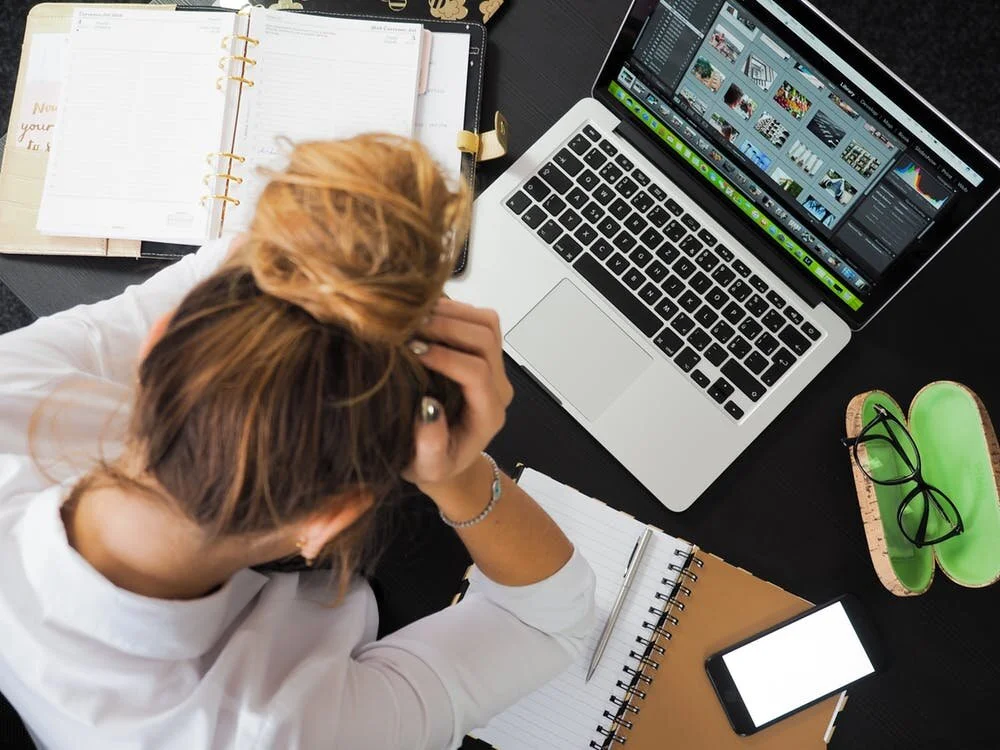Misophonia – When Noises Really Do Drive You Crazy
Someone eating with their mouth open. People chewing gum. Muffled music through walls. Pen clicking. Snoring. Sniffling. Do certain everyday sounds such as these cause irrational anger or an urge to flee in you? If so, you might suffer from a condition called misophonia. Don’t be alarmed if you’ve never heard the term before. I personally learned it only a couple of years ago even though I’ve suffered from the condition and its friend misokinesia for about 20 years.
For ages, I thought I was the only one with this problem which is why I want to let others know that there are people who understand. You are not insane, your brain is just different. And you are not alone.
What is misophonia?
People who suffer from misophonia react emotionally and physiologically to specific sounds. They experience a fight-or-flight response that ranges from annoyance to downright rage, from discomfort to an urge to escape, from mild anxiety to panic. The term misophonia means “hatred of sound” which is a bit misleading as the condition makes the person react only to certain sounds. A more describing, but less snappy term that is sometimes used is “selective sound sensitivity syndrome”.
The trigger sounds tend to be small, everyday ones that most people don’t pay attention to. In my case, trigger sounds include (among others) loud eating or gum chewing, ball bouncing, muffled TV and music through walls, birds singing and people snoring or breathing loudly. What’s interesting about misophonia’s trigger sounds is that they are heavily tied to context. In many cases, it’s the family members and friends whose noises are the most triggering to a person suffering from misophonia. I also rarely mind children making the same noises that cause me rage and anxiety when they’re coming from an adult.
It’s not completely understood what causes misophonia, but it’s thought to be partly mental and partly physical. Instead of the ears, the problem lies in the brain that appears to react to the trigger sounds in different ways than those of people who don’t have misophonia. Research on misophonia is still limited, but it seems like the problem could have something to do with sensory processing.
How does misophonia affect one’s life?
Certain situations can become unbearable to a person with misophonia. A dinner with family for example can easily feature all the worst trigger sounds. Things like going to the movies, taking the train or going to class might also feel like torture if someone there happens to be making a trigger sound. I for one have left the movie theatre in the middle of a film more than once thanks to misophonia. In general, leaving the situation or avoiding it in the first place is one of the most common coping mechanisms for people with misophonia. This can lead to isolation and problems in relationships.
The lack of information and awareness of misophonia also causes problems. First of all, it sucks having this condition if you don’t know that it has a name and that there are countless others with it. Second, it’s very difficult to explain it to others. I’m sure every single person with misophonia has been told to get over it or to stop being so sensitive. Which is about as effective as telling a depressed person to just think of happy thoughts. So, on top of dealing with the condition itself in their daily lives, people with misophonia face invalidation and even ridicule – often from those they love the most.
Unfortunately, it’s not only the ones with misophonia who suffer from it, but also those whose loved ones have it. Anyone with a family member who has misophonia knows what I’m talking about. You have most likely been snapped at for eating too loudly, snoring too loudly and breathing too loudly. And I’m genuinely sorry you have to deal with it. Trust me, we know that (most of) our requests are ridiculous, but we can’t help it. And we appreciate every effort you might make to avoid making trigger sounds.
What is misokinesia?
Misophonia is in some cases accompanied by another – equally annoying – condition that is called misokinesia. In misokinesia, the negative emotional reaction isn’t caused by sounds but by the sight of movement. These visual triggers are usually small, repeated motions such as a person jiggling their leg, foot tapping, fidgeting, hair twirling and jaw chewing. As is the case with trigger sounds, the trigger motions can be basically anything and they too are usually tied to context. The fight-or-flight reaction that the triggers cause is also the same as in misophonia.
I personally suffer from both misophonia and misokinesia and never knew that the two were connected. The first time I linked the two together was when I found out that the mother of an acquaintance of mine is “weirdly bothered” by certain repeated motions and I asked if she’s also bothered by sounds. My mind was blown when the answer was yes even though now I wonder how I wasn’t able to connect the two conditions before. This connection might tell us something about the mechanisms of misophonia and misokinesia in the brain and body, but I’ll leave that one for the neuroscientists and others to figure out.
How are misophonia and misokinesia treated?
Since we don’t know for sure what causes misophonia and misokinesia, there is no magic cure or treatment to them. Some try tinnitus retraining therapy or cognitive behavioural therapy, but in most cases people with misophonia and misokinesia just have to learn to cope. Background noises (music, TV, white noise etc.) can be a big help for example. Earplugs or headphones are also something of a must for a person suffering from misophonia.
As I’ve grown, I’ve learned to live with misophonia and misokinesia and can endure certain situations much better than I used to. Here are some of the survival tips I’ve taught myself over the years:
Use noise cancelling earbuds/headphones rather than regular ones
Always remember to take earbuds/headphones with you when leaving the house
Listening to music or white noise on noise cancelling earbuds usually blocks snoring better than earplugs
Avoid a visual trigger in public transportation by closing your eyes during the journey
Choose your seat in places such as classrooms or public transportation so that you can block visual triggers if needed
Eating something yourself can help endure another person’s loud eating or gum chewing. For example sucking on a mint or a cough drop during class or workday sometimes works
A white noise maker or app can be a very helpful in creating a background noise at home
If white noise sounds too harsh to you, try brown noise instead
The most important thing I’ve learned, however, is to stop being self-conscious about using coping methods in public. I haven’t had to leave a film in the middle of it in a long time because nowadays I don’t feel too awkward to put on my noise cancelling earbuds in the theatre if needed. The earbuds block out the sound of people eating around me, but I can still hear the film. If strangers think I’m weird for doing it, let them think so. This goes for many other situations, as well. Also, find methods that work for you. I happen to be more comfortable with earbuds than earplugs so I rely on those, but it’s different for others.
Telling other people about your condition should also be a fairly important coping method, but it’s not always easy. My oldest friends know that I’m bothered by certain noises and motions, but a “sorry you wiggling your toes is giving me a panic attack” sounds so insane that I generally just try to manage when I’m with other people. But maybe in the future more people will be aware of misophonia and misokinesia and we don’t have to feel as crazy as we now do.
If you or someone you know suffers from misophonia or misokinesia, there are a lot of helpful resources online these days. Check out misophonia.com and Facebook’s support groups, for example. Honestly, seeing people rage about all these little noises without anyone there to tell them to just ignore it is so validating. There is also a documentary on misophonia called Quiet Please… which can be a good introduction for anyone interested in learning more about this condition.
Sources:
http://www.misophonia.com/
https://www.webmd.com/mental-health/what-is-misophonia





